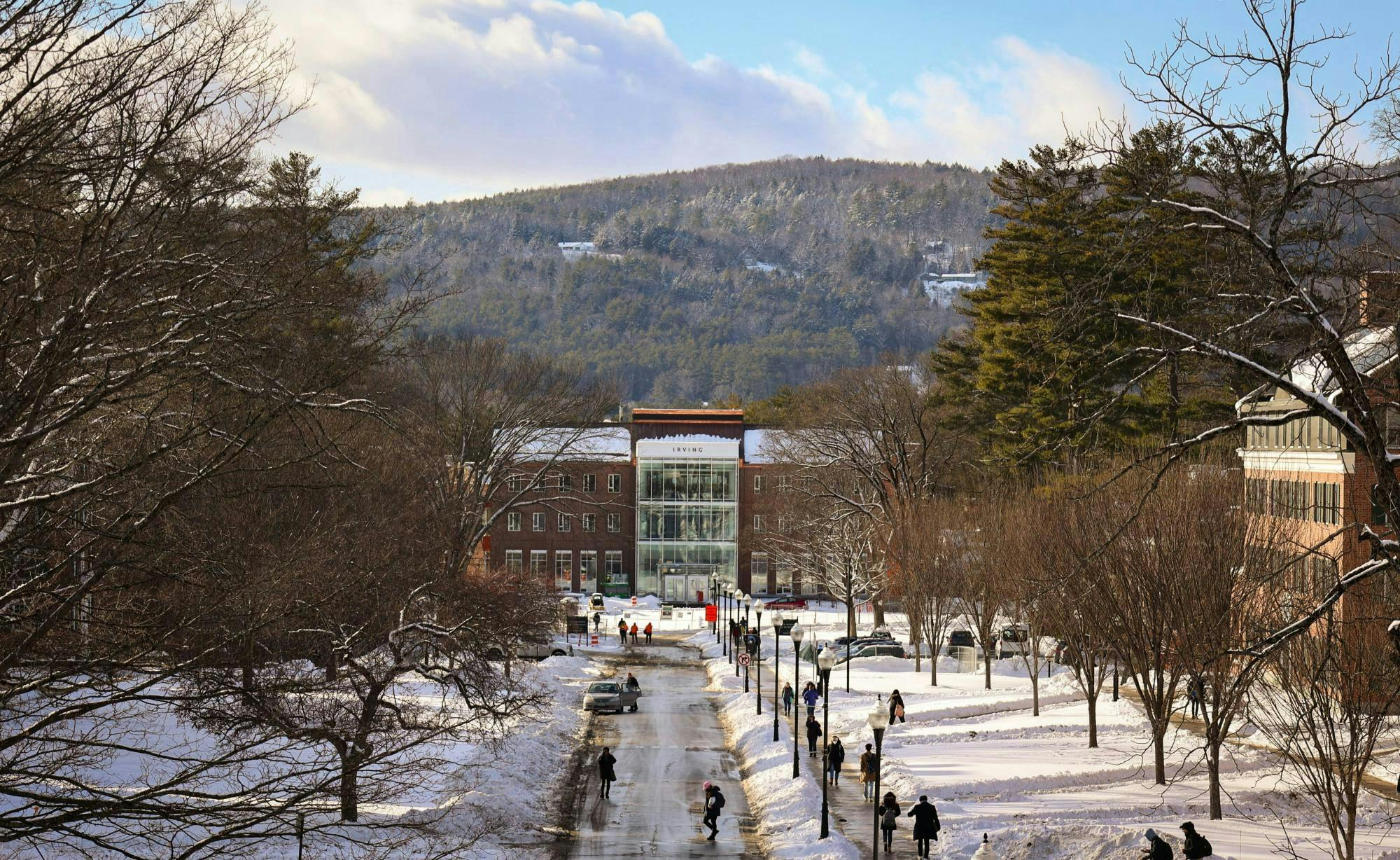Warmer-than-average temperatures this winter, which led to the cancellation of the polar bear swim during this year’s Winter Carnival weekend, have brought an early start to mud season in New England. According to environmental studies professor Shersingh Joseph Tumber-Dávila, mud season, which normally falls at the end of March, can threaten road safety and disrupt ecosystems.
Tumber-Dávila, whose research area includes the effects of global environmental change on terrestrial ecosystems, said the lack of snowfall is most likely responsible for the early start to the mud season.
“What’s happening with these mild winters is really that because there is no snowpack or less snowpack, there’s this counterintuitive effect where less snow actually leads the ground to freeze deeper,” Tumber-Dávila said.
According to Tumber-Dávila, the New England area has been experiencing a cycle of melting snow and rainfall. Tumber-Dávila explained that this rainfall seeps into the ground and leads to a deeper freeze of water in the ground in comparison to snowpack throughout the year.
During the winter there is less sunlight, which causes the trees to stay dormant and inhibits them from absorbing water, Tumber-Dávila explained. This process leads to an excess of groundwater, creating the mud.
According to Tumber-Dávila, while the trees are in their dormant state, the mud will progress, unless current colder temperatures and snowfall continue. He explained that the freeze-thaw cycle is a key component of the causation of mud season.
On campus, students have been adjusting to the changing scenery and state of the ground. While commuting to class, students have been watching out for slippery mud patches. Xander Dalke ’27 regularly commutes to class on his fat bike, which is a bike with wider tires.
“The mud sprays, obviously,” Dalke said. “I have mud flaps on my bike that catch it while the wheels are spinning.”
Ben Sontag ’25 also noted that students dislike the messiness caused by the mud, but that they must “deal with” it during this time of year.
“People don’t like getting muddy,” Sontag said.
While increased amounts of mud may be an inconvenience, they also have implications for the environment. According to Tumber-Dávila, plant root damage can occur when the roots are saturated, creating an “anoxic environment,” meaning there is no oxygen to respire. This makes it difficult for the plants to obtain water.
Tumber-Dávila also explained that it is ideal for the water from the snowpack to gradually melt into the soil and streams. However, he said that the mud season can cause “pulses of water,” which lead to greater erosion because the dormant plants are unable to use the water.
These ecological impacts also have “huge economic effects to the way we do business,” Tumber-Dávila said, noting that the forestry industry suffers from mud season.
Additionally, due to the vulnerability of roads during this season, industries that use heavy equipment struggle to execute regular business operations, he said. Logging companies tend to operate during winter because their machinery works most efficiently on top of the frozen ground.
“It’s been a nightmare for foresters this year, because they have had mud all winter, and it’s almost impossible to do their job,” Tumber-Dávila said.
Nonetheless, as New England faces muddier times, Tumber-Dávila urged students to “embrace the beauty of all these seasons, including the mud season.”




